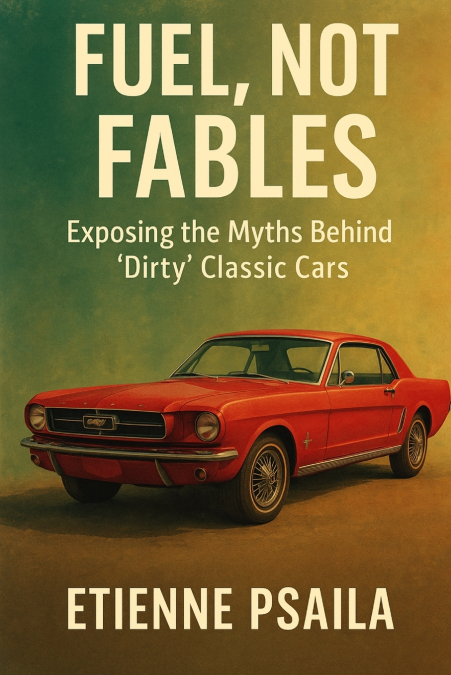
Etienne Psaila
For decades, classic cars have been dismissed as environmental villains-icons of indulgence that spew carbon and clog the skies. Yet the facts tell a different story. Fuel, Not Fables dismantles the myths surrounding older automobiles by applying rigorous lifecycle carbon math. It reveals how pampered 1960s coupes, driven sparingly and lovingly maintained, often carry a lighter carbon footprint than the mass-produced crossovers rolling out of factories today.Blending history with hard data, this book explores how automotive lifespans, scrappage policies, and manufacturing practices shape true emissions outcomes. It compares the embedded carbon of steel-heavy classics with the aluminum- and electronics-laden SUVs of the present, showing why preservation is often a greener act than replacement. From the birth of the automobile age to the rise of electric vehicles, the narrative traces how policy, perception, and marketing have skewed public understanding.Far from a sentimental defense, Fuel, Not Fables is a clear-eyed examination of evidence. It argues for nuanced regulation, honest carbon accounting, and respect for rolling heritage as part of a sustainable future. Whether you’re a policymaker, an enthusiast, or a curious reader, this book equips you with facts that challenge assumptions and reshape the conversation about cars, carbon, and culture.